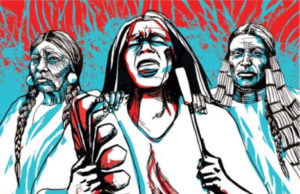Red Auerbach had nothing but respect for Michael Jordan. The NBA coaching icon often was asked whether Jordan was the greatest of all time, and he would quickly agree.
“Jordan’s the greatest player of all time — no doubt about it,” Auerbach would reply. “But if I was starting a team and the idea was to win championships, I’d take Russell first.”
That’s because Bill Russell, who died Sunday at 88, was the greatest winner of all time — in any major sport. Jordan won six NBA championships, an NCAA title and two Olympic gold medals. Russell won 11 NBA titles, two NCAA championships and an Olympic gold medal.
Russell played 21 winner-take-all games and went 21-0. Jordan lost his last game at North Carolina to Indiana in the NCAA tournament’s round of 16.
That’s not meant to knock Jordan but to back up Auerbach’s point: It went beyond numbers. Russell did something that few centers ever have: He made everyone around him better. He was a defensive genius, the first to understand why blocking a shot by keeping it in play was so much better than hammering the ball into the third row. His teammates knew they could gamble on defense because Russell was backing them up in the paint.
He wasn’t a great scorer — he averaged 15.1 points in his 13-season NBA career — but he didn’t need to be because he had great scorers around him with the Boston Celtics. He was an extraordinary rebounder, grabbing 22.5 per game. Only Wilt Chamberlain finished with more rebounds than Russell’s 21,620. He also averaged 4.3 assists. A lot of great centers never gave the ball up — Russell did so willingly. The NBA didn’t begin to track blocked shots until after Russell retired, so there’s no way to know how many he denied. This much is almost certain: His blocks surely turned into more points than those of anyone else who has played the game.
Bill Russell remembered as a ‘pioneer’ on and off the court
“It was almost like starting a fast break when he blocked a shot,” Sam Jones, his longtime teammate, once said. “There were times when I’d see someone going in his direction and I’d start towards the other end because I knew the ball was about to be coming that way.”
There was far more to Russell than his remarkable statistics. He became the first Black man to coach a major pro sports franchise when he took over the Celtics from Auerbach in 1966 and proceeded to win two NBA titles in three years — aided, no doubt, by the fact that his center was Bill Russell. He was an advocate for civil rights his entire life, having faced racism from the time he was a youth in Louisiana right through his playing days in Boston.
He was named a recipient of the Presidential Medal of Freedom in 2010 and was an inspiration throughout his life because he spoke up on political issues long before it was considered acceptable for athletes — especially Black athletes — to do so.Bill Russell, an 11-time NBA champion with the Boston Celtics and the first Black head coach in a major American sports league, died July 31. He was 88. (Video: Reuters)
Auerbach played a crucial role in Russell’s career, landing him in 1956 out of the University of San Francisco after he led the Dons to back-to-back national titles and 55 straight victories. There were no scouts in those days, but Bill Reinhart, Auerbach’s college coach at George Washington, had faced Russell’s team during a tournament in 1954.
“He called me and said, ‘When he gets out of college next year, you must find a way to get him,’ ” Auerbach remembered. “ ‘This is the center who will make you a championship team.’ ”
At that point, the Celtics were good but had not won the NBA title. In 1956, they had the sixth draft pick, and Russell was considered a lock to be the No. 1 choice. Auerbach traded two future Hall of Famers — Ed Macauley and the rights to Cliff Hagan — to the St. Louis Hawks to move up to No. 2. But Rochester Royals owner Les Harrison, whose team had the No. 1 pick, told Auerbach he couldn’t trade it because he would be accused in the local media of trying to save money.
“He told me, ‘They’ll run me out of town if I trade that pick,’ ” Auerbach said years later.
Bill Russell, basketball great who worked for civil rights, dies at 88
Auerbach came up with a solution. He convinced Celtics owner Walter Brown, who happened to own the Ice Capades, to promise Harrison that the Ice Capades would play Rochester for one week the next year if Harrison didn’t take Russell with the No. 1 pick. Harrison took Duquesne’s Sihugo Green, Russell went second, the Ice Capades played to sellout crowds in Rochester, and a year later the Royals moved to Cincinnati.
The Celtics won their first title in 1957 and 11 of 13 championships before Russell retired in 1969. They won 10 Game 7s in those years.
After retiring, Russell coached in Seattle and briefly for Sacramento, but he always remained close to the Celtics and Auerbach. When Auerbach died in 2006, Russell flew from Seattle to Washington for his wake even though, under orders from Auerbach, there would be no speakers or formal program. In 2009, Russell wrote a book titled “Red and Me.” The subtitle summed up their relationship: “My Coach, My Lifelong Friend.”
Auerbach loved to tell Russell stories. Often, he said, Russell would get tired of drills and would “ruin practice” by blocking every shot that came near him. Sometimes Auerbach would tell Russell to go home early; other days he called off practice completely. “There really wasn’t much point to practicing,” Auerbach said, “if he wasn’t there.”
A look back at Bill Russell’s remarkable life
But what Auerbach loved most was to sit back and listen to people argue about whether Russell would be as dominant in the 21st century as he was in the 1950s and ’60s.
“How would he do guarding Shaq?” people would ask, wondering how the 6-foot-10 inch, 215-pound Russell would fare against the 7-1, 325-pound Shaquille O’Neal.
Auerbach would puff on his cigar and smile. “First of all, he did okay guarding Wilt Chamberlain, who was as big as Shaq and was better offensively,” he would say. He would pause to let that sink in — then remind people, if needed, that Russell won 11 titles to Chamberlain’s two.
Then he would deliver the coup de grace: “How in the world would Shaq guard Russell? He would run him right into the floor. And when all was said and done, you know whose team would win the game? Russell’s — because Russell’s team always won when it mattered.”
No one won more games that mattered than Bill Russell. And 53 years after he played his last game, he still mattered — and always will.




